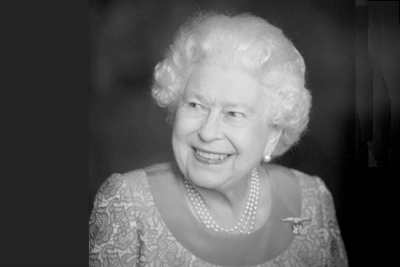The death of Queen Elizabeth II has truly rocked the nation, and indeed the wider world. Possibly the most recognisable person on the planet, she was also amongst the most highly respected and revered. Just as she has always been present in the lives of the vast majority of people in the UK, this also holds true for people from all countries, and from all walks of life around the globe. She will be profoundly missed.
Whilst debates persist over whether the Monarchy does, or should, hold a place in UK governance, there can be no doubt that the Queen demonstrated natural leadership qualities that many of our elected leaders and representatives can learn from.
When discussing and describing leadership, we often use words such as drive, passion and energy. However, what the Queen possessed were those subtle qualities that separate true leaders from the also-rans. Those qualities that make a difference without people consciously realising.
In honour of the Queen, we’re using our blog today to highlight some of her leadership qualities so that we can reflect on our own leadership styles and possibly take on board some her attributes.
Empathy: TV and radio coverage of events following the Queen’s passing have shone a light on individuals’ personal experiences and interactions with her; many of which have been, at times, incredibly moving. These reflections have demonstrated how Queen Elizabeth always seemed able to see things from others’ viewpoints and to communicate on an equal level. She always knew who people were. How well do you understand your team’s positions?
Consistency: The Queen knew the importance of being reliable and consistent. She knew what was expected of her and she always delivered. Her behaviour was, of course, exemplary without exception, meaning others never had to guess how to behave towards her. Can you team say the same about you?
Calmness: Perhaps the best example of the Queen’s ability to remain calm under pressure was when shots (albeit blanks) were fired at her whilst on horseback during the Trooping of the Colour parade in 1981. When the chips are down, a leader’s behaviour will often dictate how others react, thereby influencing how a situation is handled. Do you remain calm and in control under pressure?
Presenteeism/Sense of Duty: The Queen welcomed the new Prime Minister just two days before her death. She must have known that her health was failing at that time, but was clearly adamant to fulfil her duties to the last. She had even suggested that she should travel to London to perform those duties but was persuaded not to. Being the boss doesn’t mean delegating your jobs to others, even if you can. Sometimes there are tasks that re-affirm your position of authority or to which your authority adds the relevant gravitas.
Integrity: It can be difficult to define integrity but to suggest that the Queen was ever anything but honest, principled, and morally upstanding would be completely alien. Very religious and committed to her duty to her family, her country and her people, she was incorruptible.
Sense of Fun: The famous scenes of the meeting with James Bond for the opening of the 2012 Olympics and having tea with Paddington Bear for the platinum Jubilee are only outdone but the fact that the Queen kept them both completely secret, even from her own family. A reminder that even as leaders, we shouldn’t take ourselves too seriously all of the time.
The country has come together in grief but also in celebration for Queen Elizabeth. She was certainly a tough act to follow and whilst we wish King Charles III the very best, she will not be forgotten.



